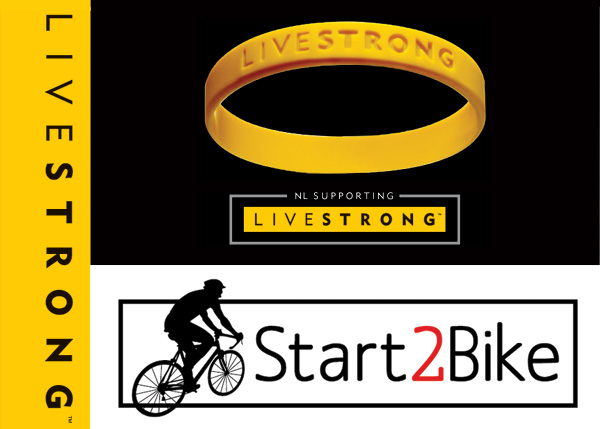Als je kind oud genoeg is om te praten, is het oud genoeg om het over kanker te hebben
8Apr2014 In categorie: Nieuws & Informatie Auteur: adminYounger Is Better
by Paula K. Rauch MD , Director,
Marjorie E. Korff Parenting At a Challenging Time Program
Massachusetts General Hospital Cancer Center – www.mghpact.org
When parents of young children ask, “What is the right age to tell my child about my cancer?” my usual answer is, “If your child is old enough to talk, he or she is old enough to learn about your cancer.” While no general recommendation will be 100% appropriate for every child or every situation, as a rule: younger is better.

Young children are learning lots of new things. They are naturally curious and the word “cancer” is not yet scary for them. Naming the cancer provides the first tool for talking with you – whether you are experiencing a new diagnosis, ongoing treatment or longtime survivorship. Think about introducing this new term as an invitation for your child to talk with you. It opens the door to asking questions, sharing observations and learning more.
Sometimes parents want to use a more familiar “child-friendly” word rather than cancer. Indeed, when a young child is told that Mommy or Daddy has a “boo-boo”, bump or is simply sick, that child can easily relate. He understands “boo-boos” because he routinely gets them, but that is the problem. If Mommy’s “boo-boo” medicine makes her lose her hair, or Daddy walks with a cane and sleeps a lot because of his bump, then “boo-boos”, bumps and being sick become much more serious and scary.
How can a child differentiate the impact of an antibiotic from chemotherapy, or a playground bump from a malignant tumor, if the words used are the same? No one at preschool will say to a child who sneezes, “I hope you are not getting a lymphoma,” but they may say, “I hope you aren’t getting sick.” These child-friendly euphemisms for cancer are errors of kindness. They are intended to soften the news and be protective, but unintentionally they can confuse or frighten a child.
It is helpful to remember that young children are perceptive. They pick up on mood shifts at home. When a child notices emotional shifts in a parent or changes in the family routine without explanation, she is likely to imagine that she is to blame for the changes she senses. This is because a pre-schooler is egocentric – he can only imagine things from his own emotional perspective. What this means is that if you are distracted, sad or irritable, your child is likely to assume his bad behavior is the cause of the change in your mood. But by being able to talk about the cancer together, you can explain that it is the cancer or its treatment that’s making you too tired to play or unable to drive the car, and not leave your child imagining that you don’t like him enough to play with him or drive him home from school.
Young children talk with their play, too. Don’t be surprised or alarmed if your child’s make-believe play includes talk about cancer, dolls or toy animals that are sick or pretend symptoms and treatments. You may observe this play or be invited to be part of your child’s medical play. In these early years, children use fantasy play as a way to explore feelings and understand new concepts. Play is a healthy coping strategy.
When a child’s play includes crying dolls or sick dinosaurs, it may be tempting to try to redirect the imaginative play to make it happier, but it is better to allow a child to play uninterrupted or just be curious about why the doll is crying, or the dinosaur needs a doctor. In the fantasy play, a child may choose to be in charge or in a more powerful role. Misconceptions may be discovered from observing a child’s play and can guide a later conversation that corrects confusion about cancer or its treatment.
It’s also best to keep routines and schedules as normal as possible. Consistent rules, regular mealtimes and a set bedtime convey a comforting sense of normalcy for young children. In spite of a family’s best efforts to keep to routines, there are almost always times when this is not possible. How easily a child adapts to these expectable disruptions is often determined by temperament. Flexible children adjust more easily to schedule changes while anxious or inflexible children are likely to exhibit more signs of distress such as clinginess, frustration or aggressive behavior. Children of different temperaments benefit from simple explanations and preparation for transitions, schedule changes and new caregivers, but shy or inflexible children will react more intensely and need additional support. Remember, consistent loving limits are better than too many extra choices, longer and longer bedtime rituals or lots of new gifts and toys. Sticking to familiar routines and structure help children feel safer and more secure.
When you talk with your young child about cancer, you convey that honest communication is a family value. Starting to talk with your child from an early age and continuing those important conversations as your child grows up supports his resilience and builds her skills to face life’s inevitable challenges. Younger is better, because it helps your child grow into an emotionally healthy adult.
Bron: LIVESTRONG

.
.
.
.
.
.
.
.
.
.
.
.
.
.
.
.
.
.




Leave a reply